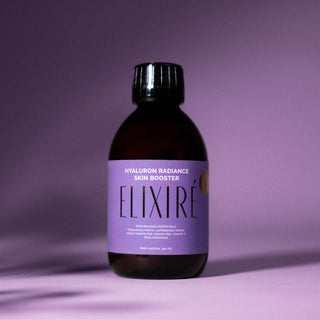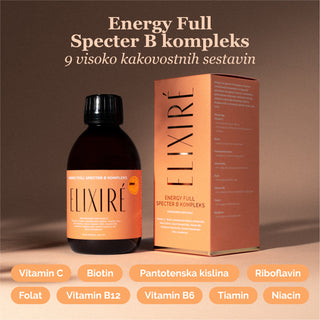What is thiamine and why is it important?
Thiamine is a coenzyme that participates in biochemical reactions that convert carbohydrates into energy (ATP). Without it, cells, especially nervous and muscular, cannot function properly. Its function is therefore closely related to brain function, muscles, hearts and metabolism. (1*)
Due to its water solubility, thiamine is not stored in large quantities in the body, which means that we must consume it. daily intake through diet or dietary supplements. (2*)
Proven benefits of vitamin B1
(in accordance with EU Regulation 432/2012)
- Contributes to energy release during metabolism
- Contributes to normal functioning of the nervous system
- Contributes to normal psychological functioning
- It plays a role in heart function
Thiamine in Slovenia – how do we get it?
In Slovenia, the majority of the population reaches the recommended daily intake of thiamine (1.1 mg for women, 1.2 mg for men), but due to food processing, monotonous diet or alcohol Deficiencies also occur. Thiamine intake is reduced when consuming refined foods (e.g. white bread, white rice), while most of the vitamin is preserved in whole grain products.
Natural sources of thiamine (vitamin B1)
Thiamine is found in many foods:
- Whole grains (brown rice, oats, wheat germ)
- Yeast, legumes, nuts (especially sunflower and flax seeds)
- Pork, liver, fish (tuna, trout)
- Eggs, potatoes, asparagus, kale
- Fortified foods (flour, pasta, cereal bars) (4*)
Symptoms of thiamine deficiency
Vitamin B1 deficiency can lead to physical and cognitive problemsMild deficiency causes:
- fatigue, irritability, headaches
- loss of appetite, muscle weakness
- poor concentration and memory
- Beriberi (neuromuscular symptoms or heart failure)
- Wernicke-Korsakoff syndrome (serious neurological impairment associated with chronic alcoholism) (5*)
How much thiamine do we need?
According to EU guidelines, it amounts to:
- 1.1 mg/day for adult women
- 1.2 mg/day for adult men
- 1.4 mg/day for pregnant and lactating women
Thiamine and mental health
Thiamine participates in the synthesis of neurotransmitters that affect memory, concentration and moodIt is known as vitamin for a clear mind, as it helps to maintain mental clarity and regulates nervous balanceResearch suggests a link between thiamine deficiency and depression, anxiety, and cognitive decline, especially in the elderly. (6*)
Do thiamine supplements work?
When dietary intake is insufficient, thiamine supplements can help maintain optimal levels. They are available in the form of:
- Thiamine hydrochloride
- Thiamine mononitrate
- Benfotiamine (form with better bioavailability) (7*)
Thiamine in the diet – frequently asked questions
Is thiamine the same as vitamin B1?
Yes. Thiamine is the chemical name for vitamin B1, the first B vitamin to be discovered.
Can I get too much thiamine?
Very difficult. As a water-soluble vitamin, excess is excreted in the urine, but high doses from supplements can cause mild digestive problems.
Does thiamine have an effect on energy?
Yes. It is key to converting carbohydrates into energy and for operation mitochondria in every body cell.
Conclusion: Why Thiamine is a Vitamin Not to Be Overlooked
Vitamin B1, also known as thiamine, is more than just part of the B-complex. It is a fundamental building block of your energy, nervous system, mental health and cardiovascular functionsWith regular input via balanced diet or, if necessary, quality dietary supplements, you can ensure that your body functions at optimal strength.








